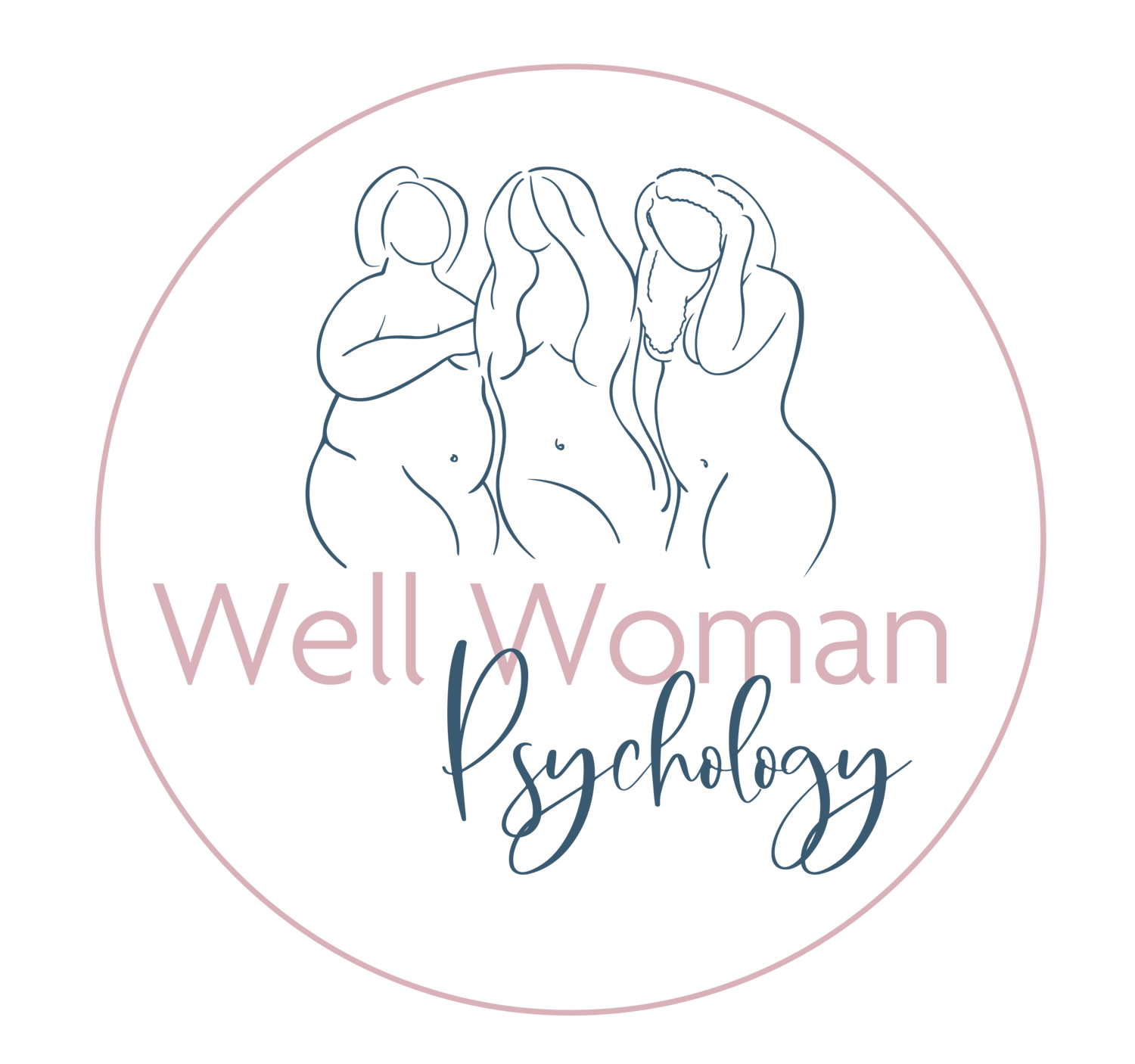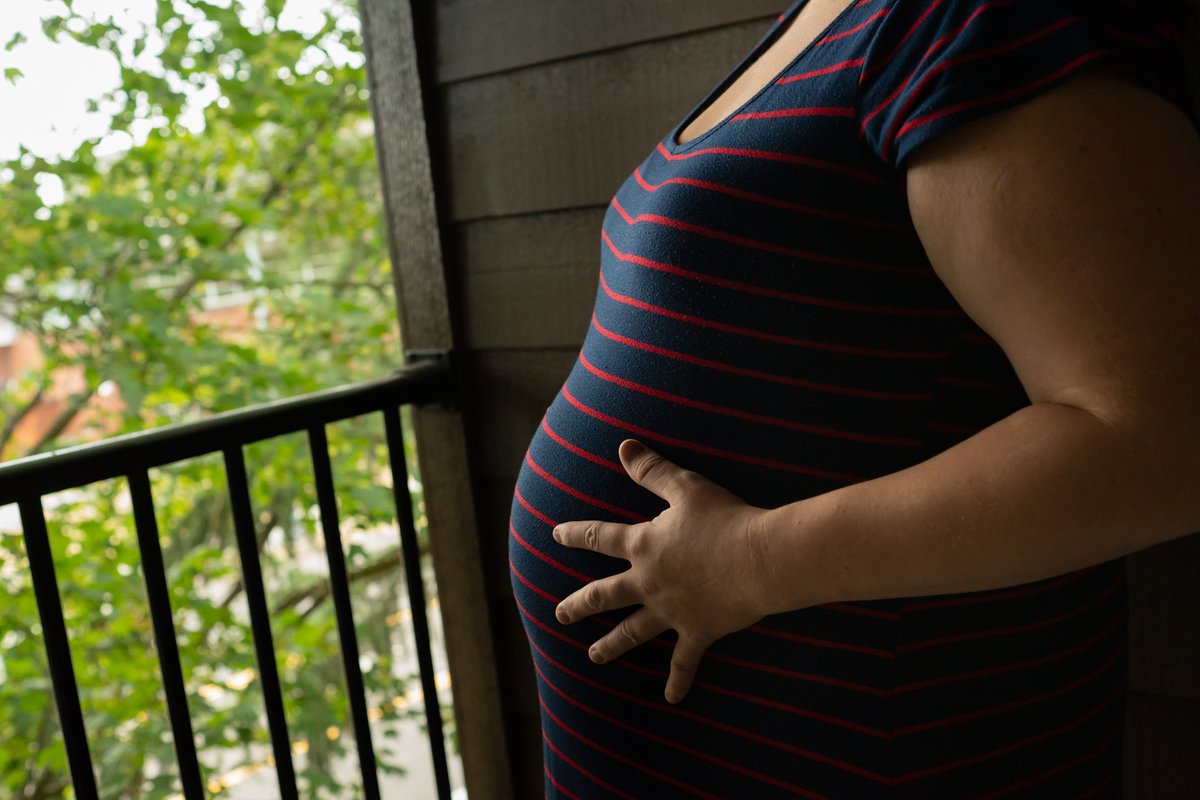Plus Size Pregnancy and Mental Health With Plus Mommy
Disclaimer: This blog is for educational and informational purposes only, is not a substitute for individual medical or mental health advice, and does not constitute a client-therapist relationship.
I recently had the absolute pleasure of being interviewed on the Plus Mommy podcast by its host and creator, Jen McClellan.
For those of you who aren’t familiar with Jen and the Plus Mommy podcast, Jen explores topics related to plus size pregnancy including motherhood, birth stories, navigating medical fatphobia, and our relationships with our bodies. Her podcast and her website, Plus Size Birth, are an absolute treasure trove of information for anyone who is hoping to be, trying to be, about to be, or is a mom. She also is the creator of the Plus Size Birth Course which aims to teach perinatal professionals how to effectively and compassionately support fat pregnant people. Go Jen!
While her work is helpful for anyone with body image struggles, it is a true gold mine of validating and helpful information for plus size women navigating pregnancy, birth, and motherhood. Her work features everything from people sharing their birth stories to what products plus size women can use to ease their journeys to what to expect week by week and includes frank, compassionate discussion of the barriers fat women (I use fat as a neutral descriptor) face during pregnancy and birth as they contend with systemic fatphobia in maternity and fertility care, clothing, celebration of pregnant bodies, comments from strangers and loved ones, and so much more.
Plus Size Pregnancy and Birth
These conversations are so very important to have, because the perinatal and birth spaces in general do not include or acknowledge fat pregnancy or plus size birth in ways that are respectful and helpful. Here are some ways systemic anti-fat bias shows up in pregnancy and birth spaces.
Only thin (or at best mid-size) pregnant bodies are featured in images.
Fat pregnant women experience assumptions about their health and self-care practices, such as the assumption that they do not exercise, do not eat vegetables, or must have diabetes or high blood pressure. We are often treated like we are putting our babies lives at risk and can’t or shouldn’t get pregnant.
Fat women are made to feel as though they are putting their baby at risk, shaming them for something high stakes during a vulnerable time.
Lack of access to products that work for plus size bodies such as maternity clothes, nursing bras, disposable underwear, hospital gowns, or other self-care products.
Education about nursing often excludes fat bodies, leaving fat parents to struggle to figure out how to manipulate a larger breast to feed baby. Breastfeeding is already a huge challenge without this added layer.
Fat women are often on the receiving end of shaming and inappropriate comments from loved ones, healthcare providers, and strangers. Comments such as “I can’t even tell you’re pregnant” or “are you sure you’re not expecting twins/triplets?” or “well make sure you’re eating right and exercising” despite having no knowledge of how you are eating or exercising.
Fat women’s “bumps” are not celebrated in the same way that thin women’s bumps are. Fat women are made to feel that their bumps are less than.
This list of experiences, which is just a fraction of what fat pregnant women endure, is why these kinds of conversations are so vital - plus size pregnant women deserve to feel seen, heard, respected, supported, and celebrated. Pregnancy, birth, and the postpartum period are hard enough without being shamed, excluded, unsupported, and stigmatized by systemic anti-fat bias!
So it will come as absolutely no surprise that I was thrilled to chat with Jen on her podcast. I really admire her work and have found it personally helpful on my own journey into motherhood. I also recommend her work to clients all the time and they find it helpful too!
Plus Size Pregnancy and Mental Health
Jen and I discuss ways in which women can tend lovingly to their mental health throughout pregnancy and beyond, which is of course a passion of mine. We chat about how to set boundaries with loved ones and healthcare providers, how to cope with emotions and hormones and huge changes, and I even get a little personal and share my birth story as a new fat mom (in my 40s no less) myself! We also discuss how to make yourself a coping plan for the postpartum period as well as warning signs of a postpartum mental health issue like anxiety or depression, including signs of a psychiatric emergency.
If you are planning to be pregnant or are pregnant, or even if you are postpartum, I encourage you to check it out and learn how you can prepare and navigate all the emotional challenges that pregnancy, birth, (and birth trauma) and postpartum entail.
Check out this preview and be sure to listen to the full episode (and others) on Apple Podcasts, Spotify, or the Plus Mommy Podcast website. Please note, a transcript is available by request by contacting Jen.
Start Therapy for Pregnancy and Postpartum in Los Angeles:
Did you know that pregnancy and postpartum are two of the highest risk times in terms of a woman’s mental health? It can be so intense, even if you wanted it so badly. Your life is dramatically changing, not to mention your body, hormones, and emotions. It is also a huge change for your relationship with your partner, as well as with yourself. There is no need to go it alone. Get support for your emotional wellbeing during pregnancy, birth, and postpartum by following these steps.
Reach out for a consultation at Well Woman Psychology.
Meet with your perinatal therapist.
Get the support you deserve as you navigate pregnancy, birth, and postpartum.
About the Author:
Dr. Linda Baggett is a Licensed Psychologist at Well Woman Psychology, serving clients online in California, Colorado, Illinois, New York, and Washington. She received her PhD in Counseling Psychology from the University of Memphis. As a reproductive health therapist, she specializes in supporting people as they navigate the joyous and difficult pregnancy, birth, and postpartum phases of life. She is trained in many evidence-based trauma treatments, including EMDR. She also works with clients to heal from trauma, relationship issues, sexuality, pregnancy loss and miscarriage, infertility, and body image and size-based oppression.



